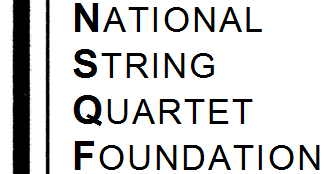Elizabeth Maconchy [1907-1994]
String Quartet No. 3 [1938]
Performed by the Ora Quartet
Triskel Arts Centre, Cork, 8th March 2025
Dame Elizabeth Maconchy was born in Hertfordshire of Irish parents, and grew up in Howth, Dublin. Maconchy considered herself to be Irish, and throughout her career she was identified as an Irish composer, or as an English composer with Irish influences, by reviewers and commentators.
She moved to London and began studying at the Royal College of Music at the age of sixteen, where she was taught by Charles Wood and Ralph Vaughan Williams. While studying she encountered prejudice against female composers: she was denied the prestigious Mendelssohn scholarship because it was assumed that she would get married and stop writing. In 1930 she won a travelling scholarship to Prague, where her first major work, the Piano Concertino (1928), was performed.
In a prolific career, she wrote vocal, orchestral, operatic, chamber pieces, and, most famously, thirteen string quartets. She won the prestigious Edwin Evans prize for her Fifth String Quartet (1948). Greatly respected by her contemporaries, she was the first woman to chair the Composers' Guild (1959–60). Maconchy was created CBE in 1977 and DBE in 1987. Her music became more radical as she grew older, moving from traditional, if chromatic harmonies, to more atonal writing in her later works.
String Quartet No. 3 is a short, single-movement work that is full of drama, dissonance, and argumentative conversation between the instruments. It begins with a Lento section which introduces the disagreement and subsequent tension between the four voices. This builds into the energetic Presto, in which there is a rapid exchange of quavers constantly moving from one voice to another. We then get respite from the fast-paced argument with the Andante section, which features a calmer, placating dialogue between the violins, while the lower strings accompany with tentative pizzicato chords. However, it is not long before we are pulled back into another Presto that is full of anguish. The Quartet concludes with a Poco Largamente, leaving the argument temporarily subdued but ultimately unresolved. Ava O’Hare
